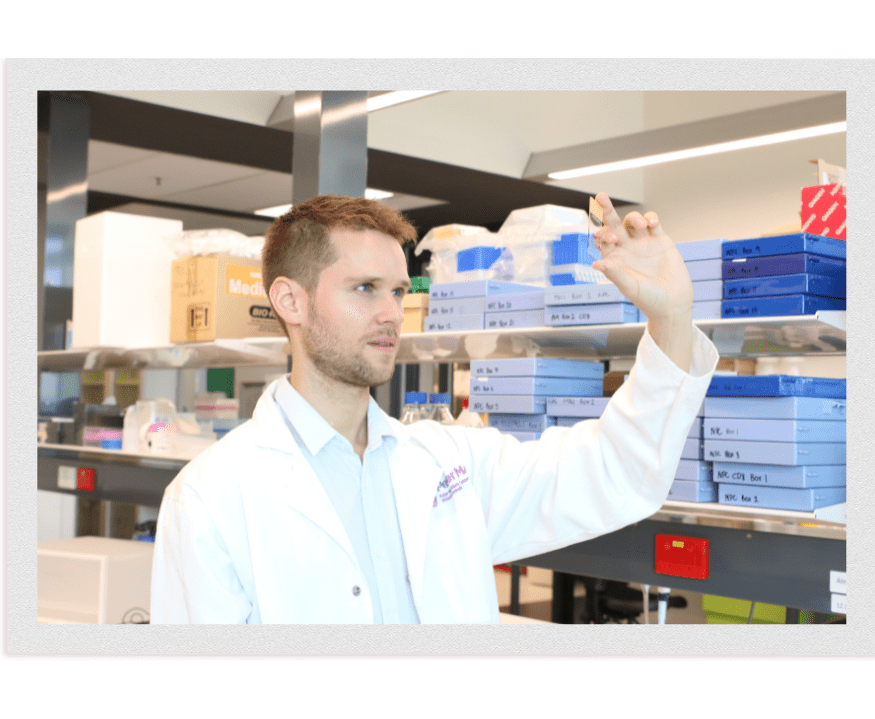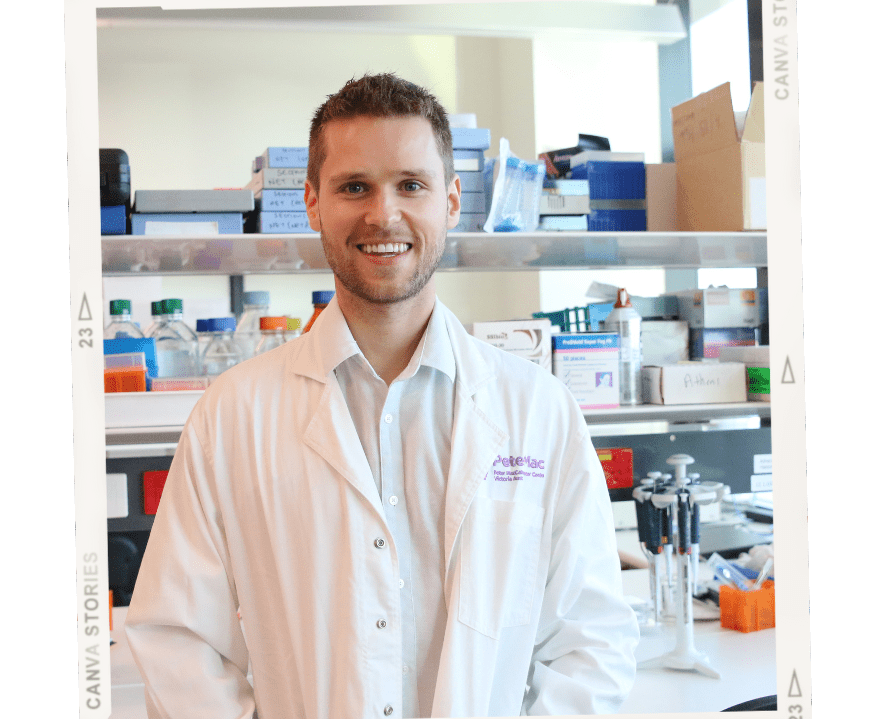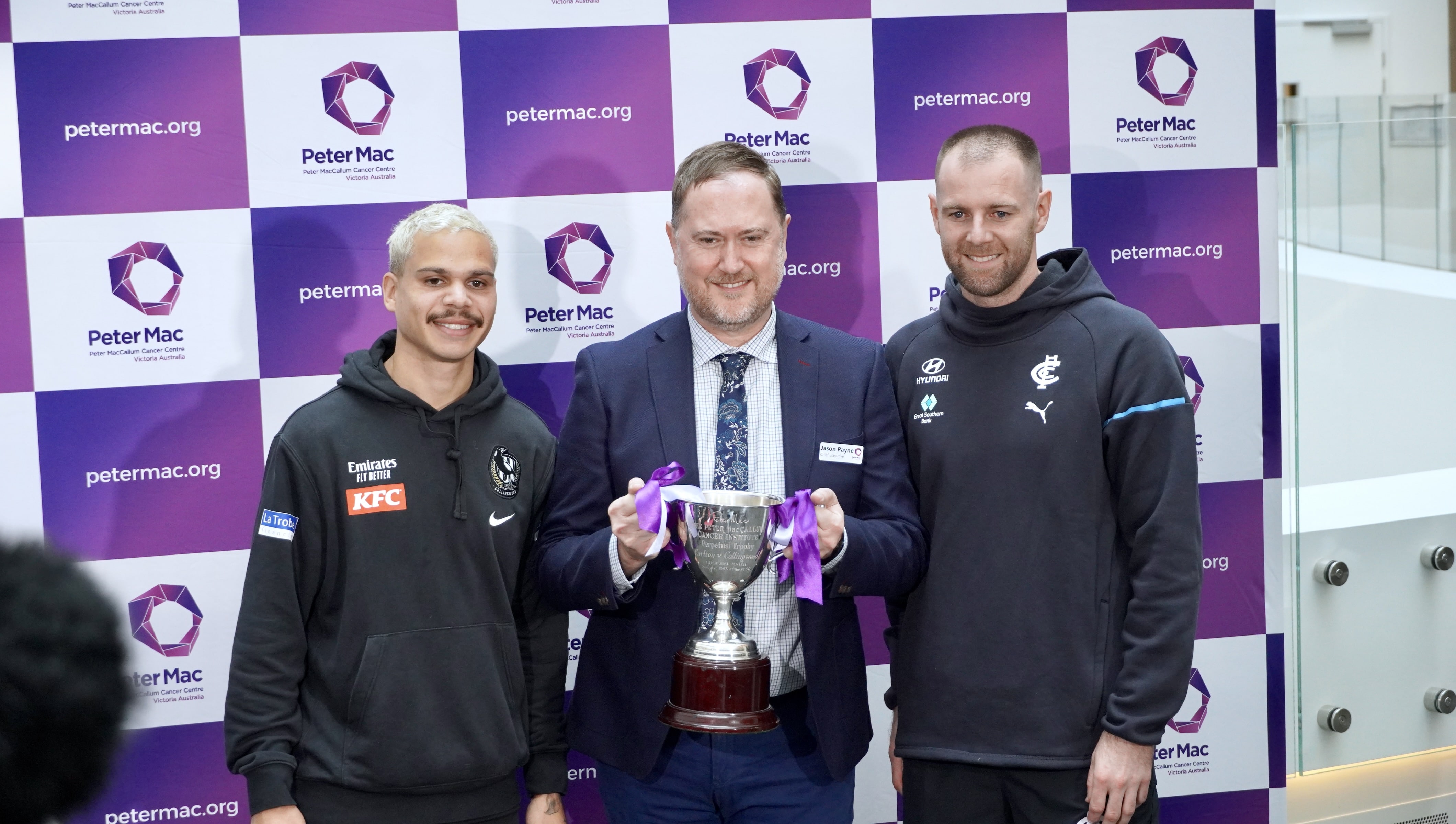Immunotherapy for head and neck cancers
11 February 2023
A Q&A with Dr McLean

Current research into immunotherapy as a treatment for head and neck cancers is showing extraordinary promise. And, at the international forefront of cancer research like this are Peter Mac researchers like Dr Luke McLean.
Together with his team, Dr McLean is working to understand how and why some cancers develop a resistance to immunotherapy treatment. Immunotherapies have shown to be effective for some head and neck cancer patients, but not all.
Dr McLean is leading the way to discovering kinder treatments by looking at the particular tumour types that occur in the head and neck and investigating how immunotherapy can be used to effectively treat head and neck cancers.
When immunotherapy works, there’s potential to avoid very morbid, extensive surgeries that can have significantly negative impacts on patient quality of life.
- Dr McLean
Today, we’re thrilled to share with you this Q&A with Dr McLean so you can get a more comprehensive insight into his research, what he's discovered so far, and his hopes for the future of head and neck cancer treatment. All in his own words!

Q: Dr McLean, why have you chosen head and neck cancers as your area of expertise?
A: My interest in head and neck cancers has largely come from them being a somewhat neglected cancer type. Without passionate researchers like me and my team and I, I think the whole field of head and neck cancers would continue to be left behind other tumour streams.
Q: Is part of your interest also because of the impact these cancers can have on patients?
A: Absolutely. The impact of these cancers is really, really under-recognised, particularly from the point of view that patients can have a very visible, debilitating tumour. If you have a cancer where these tumours develop, on your larynx, tongue, or the roof of your mouth… it's just a really, really nasty area of the body to develop cancer.
Q: Why are you looking for so-called “kinder” treatments?
A: Presently, the curative treatments for these cancers can be very debilitating. Surgery, for example, might mean that you could lose your voice box and no longer talk, or you could lose a portion of your tongue which would impact your swallowing and breathing for the rest of your life. We need kinder treatments so these lifelong impacts can be avoided.

Q: And your research is looking into immunotherapy as one of those treatments?
A: That’s right. The key research questions I’ve had have been around the fact that we see a group of head and neck cancer patients that respond really, really well to immunotherapy with their cancer dying off, healing over and their lives being saved. But even though we get those good responses in some patients, it doesn't occur for everyone. We don't yet know how to identify which patients are going to respond.
Q: What form is your research taking?
A: I'm looking at examples of tumours that have responded to immunotherapy and examples of tumours that haven’t responded or have gotten worse. I'm taking those samples, I'm looking at them both in terms of molecular genomics and in the lab down a microscope, doing some testing on the samples and trying to work out how they are different.
Q: And where is your research at presently?
A: We've really been doing this over the last 12 months and once you get all of the genetic information, it then takes a long time and a lot of work to try and find out which genetic mutation might actually be causing the resistance. That will probably take another 12 months I think, for us to get those specific results.
Q: What has been your most surprising finding so far?
A: The fact that we're seeing some really profound responses where visible tumours are disappearing. It suggests that there's a real potential for us to actually improve outcomes for those patients that are perhaps not getting these results.

Q: How do you feel about the work you are doing and the results you’re achieving?
A: It's extremely rewarding. Particularly for cutaneous squamous cell carcinomas (one of the head and neck cancers Dr McLean is looking particularly closely at). Historically, until immunotherapy came along, we really had no good treatment options. When these patients couldn't have surgery or radiotherapy, their chemotherapy response rates were very low and you couldn't cure someone. Then when immunotherapy came along, we started to, for the first time, see these really profound responses in certain patients. I think when you've got a scenario where, for example, you've been able to preserve someone's vision because you gave them immunotherapy, I think that's a pretty profound thing.
Q: Is there anything you’d like to say to Peter Mac supporters?
A: Well, obviously thank you. Everything we do here in the lab would not be possible without the support that's provided by donors. We start in the lab by looking at things, finding patterns, which hopefully we can identify, for example, in this project. Then from that you can start some early studies. And on it goes. Everything starts in the lab. Research is so important from that point of view. That's something that can't be overstated really, a lot of what we do is possible thanks to the generosity of others who are willing to help us fight cancer. Thank you.

Thank you for always being such an important part of the Peter Mac family. Your kind support gives us all hope that kinder, life-saving cures are within reach.


